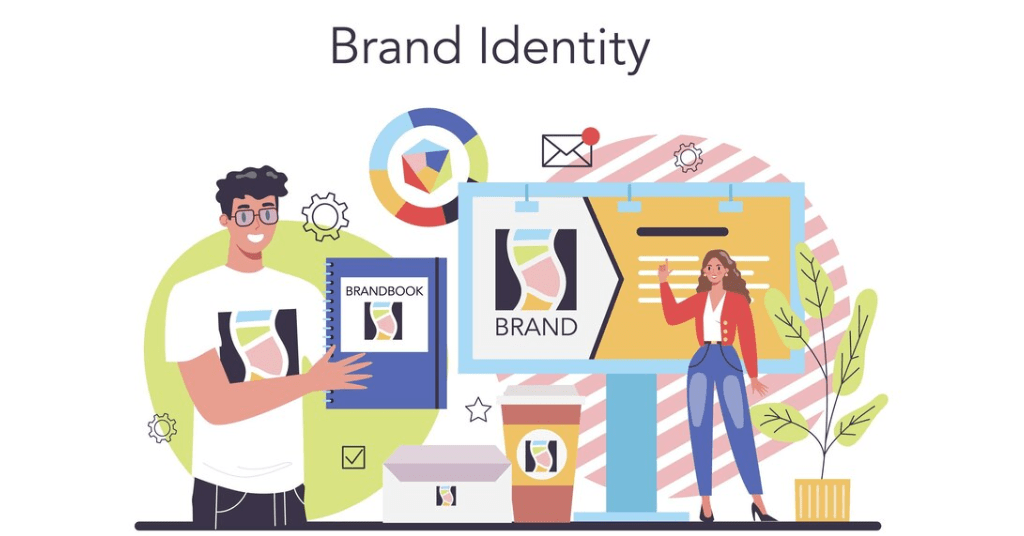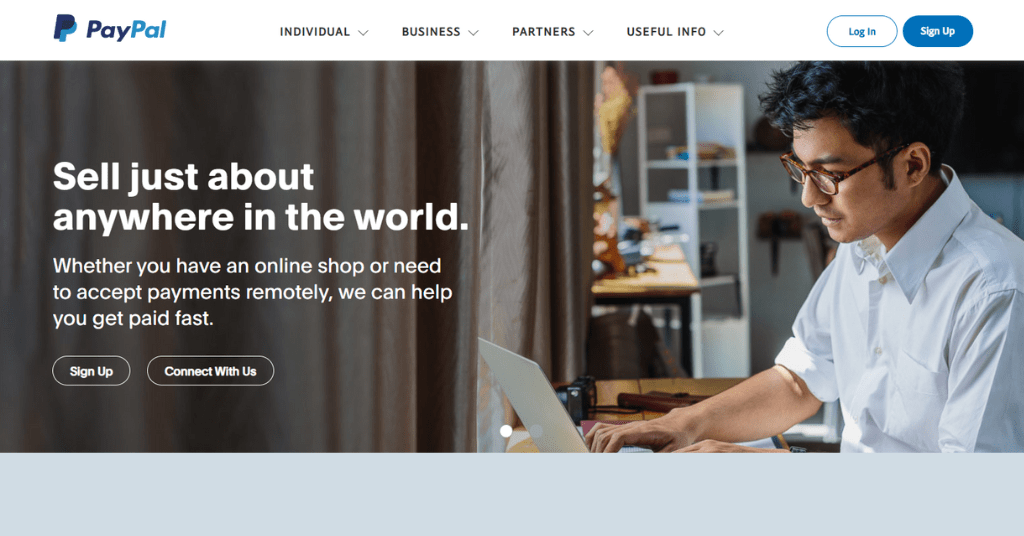10 Steps to Launching Your Online Business – There are several options for starting an online business in a relatively new digital environment, aiming at a wider audience, reducing overheads, and being flexible enough to be done from anywhere, with numerous ways to earn money, including E-commerce, digital services, or content creation. But launching an online business or any business, for that matter, requires a clear, strategic plan for accomplishment over the long run.
This article will walk you through the 10 essential steps in taking that business idea and turning it into a profitable venture. These 10 steps guide you through from finding a viable idea to launching your brand, giving you a solid foundation on which to build, grow, and scale an online business.
10 Steps to Launching Your Online Business –
Identify Your Business Idea –
The first act of launching your online business would be the identification of a profitable and sustainable business idea. This process would involve brainstorming potential concepts that best fit your skills, passions, and the needs of the market. Identify gaps in the market where demand exists but lesser producers are catering to this demand.

Identify Your Business Idea
Online tools include Google Trends, social media forums, and even industry forums to spot trends and size up consumer interest. Validate the idea before you really begin digging in. Small-scale testing of your ideas, gathering of feedback from your potential customers, and the MVP are some concepts about validating the market for your product or service. Do not invest time and money into ideas that will never pay back if there is no real demand for it in the marketplace.
Conduct Market Research –
A prerequisite before you begin the process is researching the market to understand your target audience, competitors, and market dynamics. Define your target audience: a specific group of people most likely to buy the product. Now, research through survey, focus groups, and social media listening tools to identify needs, preferences, and points of pain for this target audience.
Analyze the competition and study their strengths, weaknesses, and place in the marketplace. These are tools to find competitor strategies that will provide gaps that you can capitalize upon. You would better be positioned to make the proper decisions about how to best position your business, and the refinement of your offerings to clearly set it apart in the market from other businesses.
Write a Business Plan –
A business plan is the blueprint of your online business. It states your purpose and goals, target market, revenue model, marketing strategy, and financial projections. In fact, the major components include an executive summary that will give the reader an overview of your business; a business model showing how you would make money; and marketing strategy that describes how you are to attract and retain customers.

Business Plan
Financial projections, such as a budget and sales forecast, can also be considered if you plan to look for funding. Having a comprehensive business plan is one way of guiding your actions that will make your business attractive to investors and partners by showing your vision and strategy for success.
Choose Your Business Structure –
Selecting an appropriate business structure is very important in defining your tax, liability, and legal responsibilities. The most popular forms are corporations, partnerships, LLCs, and sole proprietorships. Although it is the simplest, a sole proprietorship does not offer liability protection.
An LLC would be a good balance of simplicity, liability protection, and tax benefit, which explains why it has become very popular for many online businesses. They provide maximum liability protection, but are very complicated and cost much more to set up and to manage. It is thus recommended that you engage a legal or financial advisor to make a suitable choice for business needs that are complaint with all the legal requirements.
Register Your Business and Get Licenses –
Registering Your Business A business registration marks a major milestone that institutionalizes your business and establishes legal protection. First and foremost, you need to register your business name with your state or local government and get an Employer Identification Number from the IRS if you are in the United States.
A sales tax permit, professional license, or other licenses or permits may be required based upon the nature of your business and location. Compliance with local, state, and federal regulations makes sure your business is operating legally and avoiding penalties or other legal issues resulting from lack of compliance with such laws. A checklist of the various required licenses and registrations will help you streamline the process.
Build Your Brand Identity –
Branding refers to creating a brand identity that will make your product stand out in the noisy online marketplace. Brand identity encompasses such things as logos, color schemes, typography, and messaging, all put together to represent your business. This builds recognition and trust with your audience when practiced consistently across platforms.

Build Your Brand Identity
Canva also helps to create a logo and brand design at a very minimal cost but with a high professional look. Set a tone in your brand voice-be formal, friendly, or playful so you can interact with them authentically. A crisp compelling brand identity makes a lot of difference when it comes to marketing efforts and the overall perception from the customers’ end.
Create Your Website –
The design of your website is basic for any online business, as it symbolizes a digital storefront. Make the right decision in choosing the most attracting name as short as possible to be easily remembered, then pick one or the other website-building platforms with such applications as WordPress, Shopify, and Wix, not demanding serious technical proficiency for you to develop a business-friendly website.
Prioritize your design being friendly to users clear navigation, rapid load, and its response on mobile. Basic pages include Home, About Us, Products/Services, and Contact. Good images, compelling content, and a hassle-free checkout process define the improvement in user experience and assist in conversion.
Set Up Your Payment and Shipping Systems –
Smooth and safe payment and shipping system is something that can describe the success for the online businesses. Add gateways for payments that include PayPal, Stripe, or Square to make a customer’s option of payment in the desired one with a seamless and safe checkout process.

Payment and Shipping Systems
For E-commerce also, the right shipping provider proves equally important. Compare the options based on cost, speed, and reliability to meet customers’ expectations. Automate order processing and tracking so that there are minimum errors and high efficiency. While returning policies are transparent and directly tracking the shipment reduces the post-purchase complaint from the customers, this increases your reputation in business.
Develop a Marketing Strategy –
An effective marketing strategy is the best way to attract customers to your online business. It must be a combination of Content Marketing, Social Media, SEO, and paid advertising in the right proportions to reach your target market. The content created must be a valuable resource for the address of your audience’s needs and pain points to position your brand as a trusted resource.
Use Facebook, Instagram, LinkedIn, and Google Ads depending on where you know your audience spends time. Nurturing leads and repeating sales are also done by building an email list. Influencer Marketing and collaborations will get you more reach and credibility way faster than a lot of other methods.
Launch and Optimize Your Business –
It is so much fun finally launching your online business. Never forget this is only the start because you will work every day toward making it a success. Take analytics tools such as Google Analytics and social media insights to track performance while understanding what each customer is doing and wanting.

Launch and Optimize Your Business
Keep on optimizing your website and marketing campaigns along with product offerings based on their data-driven insights and customer feedbacks. Periodic updating of the content, testing of new strategies, and targeting measurable milestones would help adapt to changing markets and be competitive in that market. Continue to tighten your strategy over time to continue improving customer experiences, increase sales, and expand your business.
Conclusion –
It is such a very full-filling journey to start an online business but only after careful planning and execution. Follow these 10 steps so you can tread through the process from concept to launch with confidence, setting your business up for success in that digital marketplace. Take the plunge into entrepreneurship today and seize those challenges and opportunities with both hands. Remember, every great business began with one idea-now is the time for yours.
Read Also Another Article –
7 Effective Ways to Market Your Online Business
Frequently Asked Questions –
Q.1. What is the Best Online Business to Start?
Ans – The best online business you can initiate depends on your skills, interest, budget, and market demand. However, among some of the most popular and profitable online businesses are E-commerce, Dropshipping, Affiliate Marketing, Digital products, Freelancing, and Online coaching or consulting.
E-commerce refers to the sale of any physical product or a digital product through your website or maybe through platforms like Amazon, Etsy, or Shopify. Dropshipping is more or less the same but does not require holding any inventory because you would buy products only when you have made a sale.
Affiliate marketing also basically engages you with the process of marketing other companies’ products for which you get a sales commission through your referral links. That kind of digital product has the potential to be scalable since you make the product once, and it sells repeatedly.
Freelancing or consulting is the exploitation of your skills, maybe your writing, Graphic Design, programming, or business strategy, to offer that expertise to a global market. The success factor now is to focus on the right business model, which aligns well with your relative strength, has demand in the market, and is scalable in the future. Whatever type of business you may choose, independent of that, sound market research and understanding your target will define your plan for marketing.
Q.2. How Much Does It Cost to Start an Online Business?
Ans – This definitely varies widely with the type of business, its scale, and specific needs. For some businesses, it may run from as little as $100 upwards of $2,000 or more. To begin, you would need a very basic online store: a domain name costs around $10-$15 per year and a hosting service can be as low as $3-$10 a month.
E-commerce platforms, like Shopify, can cost you $29 a month to get started, while creating custom-built websites is often pricey. If you are involved in dropshipping, initial costs might be relatively low because you will not be holding any inventory, but marketing and advertising costs will definitely be there, from $100 to $1,000 a month or more, depending on your strategy.
Freelancing or consulting can be started almost at no cost, especially if you already have the skills and just need a place like Upwork or Fiverr to get connected with clients though you might invest in personal website branding. Digital products business costs are mostly creating the product, such as a software code or course development, which can vary hugely. Other costs include marketing tools, social media advertisements, email marketing software, and creating content. There are also ongoing expenses such as software subscriptions, marketing, and platform fees to maintain and scale your business.
Q.3. How Long Does It Take to Launch an Online Business?
Ans – But launching an online business still takes different amounts of time depending on how prepared you are, how complex your business is and what resources you have. It may take weeks or months. It will only take days to set up a basic e-commerce website with an off-the-self platform like Shopify or WooCommerce if you know precisely what you want to do and you have your products ready as well as the most basic technical skills.
Contrary to that, the complex businesses may have a custom-built website, app, or digital product and thus might require much more than the simple businesses; hence it takes up to months due to product development, testing, and optimization. In case your business requires market research, brand development, content creation, and customer base, it will take several weeks to accomplish all of them so that your business launches properly.
Legal requirements like registration of the business, setting up taxes and payment processing can also eat a little more time. Rapid launches can be achieved through proper focus and resources but quality, user experience, and proper marketing will take precedence above an unwarranted hurry; give some room for testing the product or service, gathering feedback, and perfecting the idea before running the business.
Q.4. Do I Need a Business License to Sell Online?
Ans – In fact, the kind of license an online seller is going to need depends on location, type of business, and local regulation. In most cases, an online business, especially a single proprietorship, does not need any special license to be started.
However, certain states and countries may require you to get a general business license to operate legally even though you may be an online-only entity. If you are selling tangible products, you may require a seller’s permit or sales tax license to collect sales tax from your customers. If you are offering specialized services, such as financial consulting or health advice, you will need a law-specific license or certification in your state.
Another reason you might need a license is if you are using a name other than your legal name for your business (for instance, operating under a fictitious business name). You might have to obtain a “Doing Business As” DBA registration. It is important to verify with local authorities or even a lawyer so you will meet all licensing and tax requirements in your jurisdiction.
Most informal internet business ideas progress into formal registration, proper licenses, and set you on solid legal ground and make the customers, suppliers, and partners have confidence in you. Legal compliance saves you from paying fines or penalties and getting your business operations interrupted and out of commission in the future, giving you a good ground to grow on.








